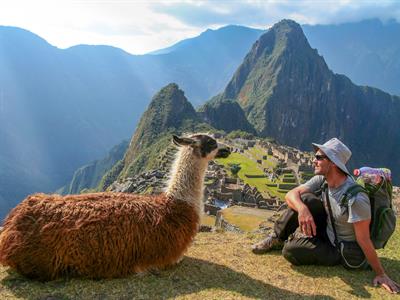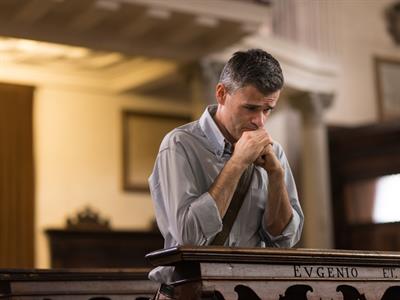
PUMPA - SMART LEARNING
எங்கள் ஆசிரியர்களுடன் 1-ஆன்-1 ஆலோசனை நேரத்தைப் பெறுங்கள். டாப்பர் ஆவதற்கு நாங்கள் பயிற்சி அளிப்போம்
Book Free DemoHave you ever wondered what it is to be an animal? Most often, we think of animals as carefree, lethargic and ignorant. We take care of our pets, and we feed and bathe them. Whereas human beings have to study, earn and survive on their own. In fact, the existence of human beings has been termed the survival of the fittest. But contrary to popular opinion, the poet Walt Whitman seems to find the existence of animals as beautiful and important.
Whitman is a realist; therefore, he does not exaggerate and romanticise any ideas. The Romantic poets focused more on the individual. But being a realist, he talks about the obvious facts of life. He talks about how he finds animals far better than humans. He says that if life gave him a chance, he would turn and live with animals. Darwin's theory of evolution states that humans evolve over generations by inheriting traits and characteristics. But Whitman does not feel that human beings have evolved in a good way, which is why he uses the word 'turn', as he wants to go back. He wants to live with animals, as they are so placid and self-contained. This shows that he thinks of humans as individuals who create a ruckus over simple things. They fight and push other down. They are not satisfied with whatever is given to them. On the contrary, animals are happy if they get their food. They do not ask for more or are not egoistic against their species.

Man looks at animal for a long time
Whitman is so mesmerised by the idea of co-existing with animals that he stands and stares at them for a long time. He cannot contain his fondness for animals. He lists out the reasons why he finds animals superior. Unlike humans who crib and complain about every single discomfort, animals remain cool and never whine about what is missing from their life. They do not sweat about all the things that could have been. They do not believe in anything except for the present moment, whereas human beings commit sins and later lie in the dark thinking about how to repent. Animals do not falsely portray themselves as God-fearing and then do illegal things. Humans constantly talk about their duty to God but do not do anything to fulfil it.

Man weeping for sins
Walt Whitman seems to be vouching for the fact that animals are better than humans by laying forth various qualities of animals. Animals are simple-minded, and they do not even think about materialistic possessions. Neither do they ask for more than what has been given. They live in the present and do not hold grudges.
Animals are never dissatisfied. If a puppy is given a breadcrumb, it will be grateful forever and wag its tail whenever it meets the person. They only have five senses and do not think about taking more than what is given to them. Generally, they are complete in themselves, even if it is their approach to life. Human beings can be materialistic. They want a car if they own a bike, and they want to own a house if they have an apartment. Needs keep changing according to the position they reach. But for animals, there is no use for materialistic ambitions. They do not think that owning things would make them a superhero.

Human beings behave in an animalist way
Human beings have a hierarchy in their living style. We have a lot of differences in terms of caste, colour, religion etc., whereas animals treat everyone equally. Although the food chain is designed in such a way that certain animals are predators, they do not bow or kneel to another. They do not even kneel to humans, who are basically their own kind who evolved thousands of years ago. They treat everyone equally. They do not express sorrow about the way the world is. They are very honest in showing their relation with other animals or humans. They never fake anything like the humans. He later introspects on his own character and life. He wonders where the animals had gotten these amazing and simple traits. He thinks about the time when he himself had possessed these tokens. The poem ends with the poet wondering if he had lost all these qualities as life went by. He wonders if he had negligibly dropped them. This is a reference to all human beings who have forgotten their values as life moves by.